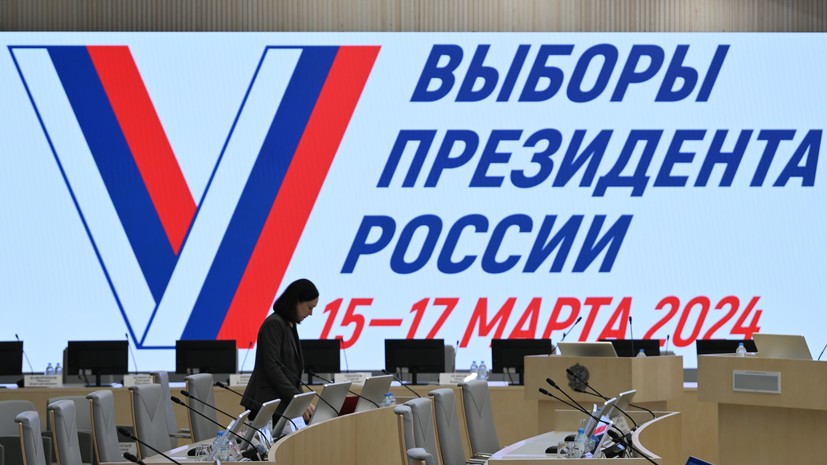Batashev and Bogdanov dropped out of the presidential race
On Wednesday, January 31, two more people refused further participation in the election race for the post of President of Russia. Self-nominated candidate Anatoly Batashev brought documents to the Central Election Commission, but did not submit them, saying that he was “not ready” to submit papers. According to RIA Novosti, he did not specify how many signatures out of the required number of 300 thousand he managed to collect.
“We fell way short technically,” he said.
In turn, the founder of the Russian Freedom and Justice Party, Andrei Bogdanov, presented signature sheets to the Central Election Commission on January 31. However, later, Deputy Chairman of the Central Election Commission Nikolai Bulaev said that the candidate wrote a statement about his resignation and withdrawal from the presidential race.
“I wrote a statement to withdraw my candidacy from the elections due to the discovery of a foreign account that I did not manage to close,” Bogdanov explained. He clarified that he did not want to “burden the CEC with checking signatures.”
Nadezhdin and Russkikh submitted signatures
Boris Nadezhdin, nominated from the Civil Initiative party, handed over signatures in favor of his candidacy on January 31.
“What no one believed at all a month ago, what many doubted a week ago, went smoothly. Here are boxes containing 105 thousand signatures of Russian citizens, I emphasize, collected on the territory of the Russian Federation,” RIA Novosti quotes him as saying.
The politician added that “many tens of thousands of people” signed for him outside the country, but these signatures will not be submitted to the CEC.
When submitting signatures, a CEC representative drew the attention of Nadezhdin’s team to some shortcomings, in particular, the discrepancy between some of the data specified in the annotation to the folder with the actual contents of the document. He also clarified that according to the law, five signatures must be submitted on one sheet and asked the candidate’s representatives to recalculate the data.
Boris Nadezhdin and representatives of the Central Election Commission
Meanwhile, the Prosecutor General’s Office received an appeal from social activist Vitaly Borodin with a request to check the circumstances of the collection of signatures in support of Nadezhdin. He stated that trustees of the Federal Project on Security and Anti-Corruption, which he heads, visited one of the points for collecting signatures for the politician in Moscow.
According to Borodin, activists found out that, in addition to volunteers, citizens who are financially interested are involved in collecting signatures. In particular, one “live” signature is allegedly valued at 50 rubles. Borodin also drew attention to the fact that videos are being circulated on social networks in which a certain young man claims that a reward of 350 rubles was also paid for an hour in line at Nadezhdin’s headquarters.
The head of the FPBC asked the Prosecutor General's Office to check this information for possible violations of the country's legislation on presidential elections.
On Wednesday, a self-nominated blogger, the Russian Rada, also submitted signatures in her support. As RIA Novosti reported, she brought three boxes with signature sheets to the Central Election Commission, without specifying their number.
Meanwhile, on January 31, the process of accepting signature sheets officially ended, as reported by the CEC press service.
“In accordance with the law “On the Presidential Elections of the Russian Federation,” the acceptance of documents for registration of candidates has been completed,” CEC member Yevgeny Shevchenko told reporters.
Further preparations for the elections
Voting in the Russian presidential elections will last three days: March 15, 16 and 17, 2024. The Central Election Commission has already registered four candidates for the post of head of state. These are Leonid Slutsky from the LDPR, Vladislav Davankov from the New People party, Nikolai Kharitonov from the Communist Party of the Russian Federation and Vladimir Putin, who stood as a self-nominated candidate.
According to Pavel Andreev, a member of the Central Election Commission, in the upcoming elections, 276 polling stations in 143 foreign countries will operate outside the territory of Russia, including seven polling stations on the territory of Baikonur. “We suspect that additional areas will be created. Work in this direction is underway,” he added.
In turn, the head of the Central Election Commission Ella Pamfilova said that Russians have already submitted 465 thousand applications to participate in remote electronic voting.
“As of this morning, more than 545 thousand applications have already been submitted: 465 thousand for remote electronic voting in 28 regions where it is held, and more than 80 thousand for voting at their location,” RIA Novosti quotes her as saying.
Pamfilova clarified that applications will be accepted until March 11.
In addition, the Central Election Commission stated that the draw for free airtime for campaigning candidates in the Russian presidential elections should take place on February 13. A little later there will be a draw for the provision of free printing space. As CEC Secretary Natalya Budarina clarified, campaigning for candidates for the post of head of state in the media will start on February 17.

